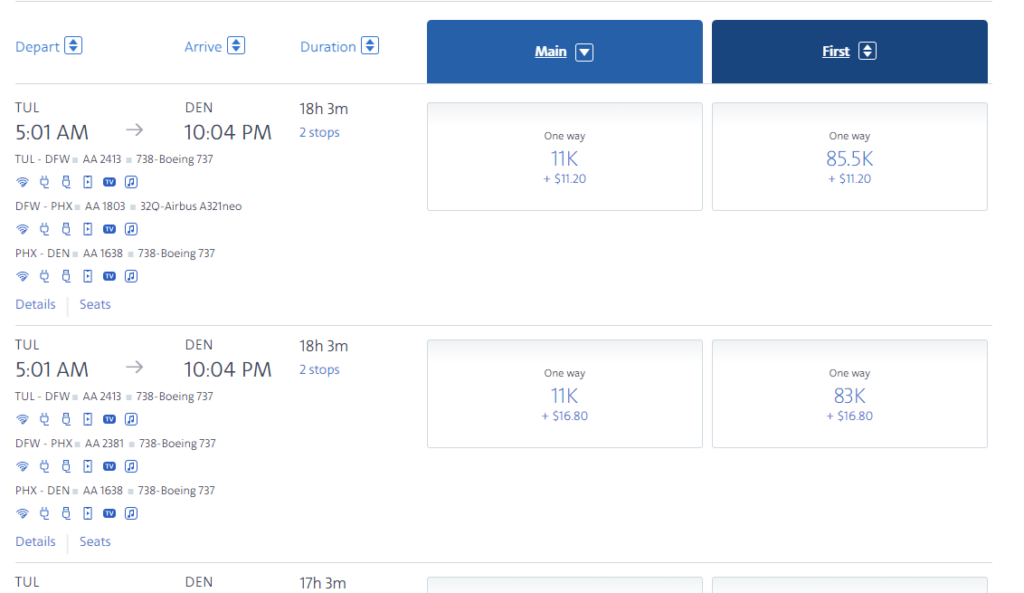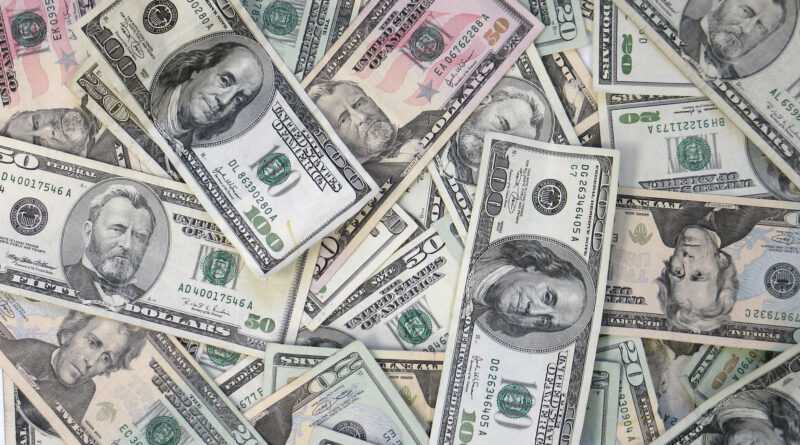TSA Fees for Long Layovers: Double Trouble for Your Wallet
In my recent quest for some (relatively) close-in American Airlines tickets to Denver (DEN), I stumbled upon a curious discovery that left me scratching my head. I always advise booking domestic itineraries as a pair of one-way flights, in order to retain the maximum possible flexibility. This is doubly true with AAdvantage award flights, owing to AA’s asinine policies preventing changes on most award tickets without canceling the entire PNR and starting over. By booking two one-ways, you can cancel your (separate) outbound PNR without touching your return, or vice versa. I practice what I preach, so I was doing just that in my search.
What caught my attention was the price breakdown. One of the supposedly cheaper options came with a not-so-welcome surprise: 11,000 AAdvantage miles plus a hefty $16.80 in taxes and fees. Similar search results sported taxes and fees amounting to $11.20 for a one-way ticket. That’s 3x and 2x the normal $5.60 TSA security fee, respectively, for domestic and outbound segments originating in the USA. So what gives?

Curiosity piqued, so I delved into the intricacies of TSA fees and found my answers in the depths of 49 CFR § 1510.3. It turns out that the fee is charged per “one-way trip,” but the devil is in the details of exactly how a “one-way trip” is defined.
According to the regulation, a “one-way trip” is continuous air transportation without a stopover, where a stopover is defined as a break in travel exceeding four hours for continental flights and twelve hours for non-continental or international flights.
In plain English, if your layover surpasses these thresholds, your “one-way trip” is split into two separate trips for TSA security fee purposes. Brace yourself for an additional $5.60 fee per passenger for each layover that breaches these limits.
The rationale behind this distinction seems a bit questionable. The assumption is that anyone with a four-hour layover might venture outside the airport, necessitating a second round of TSA screening. While this logic may hold water in smaller hubs like Dallas-Love Field (DAL), leaving the airport on just a four hour layover feels like playing with fire in major hubs like Denver (DEN) or Atlanta (ATL), where even the TSA PreCheck & CLEAR lines routinely exceed a half hour wait.
And let’s not forget, this fee is assessed based on the itinerary as booked. So, if your layover extends beyond four hours due to airline mishaps (such as IRROPS), you catch a break and avoid these extra charges. Conversely, if your layover shortens due to a delayed inbound flight to your layover point, there’s no refund coming your way.
Now, nitpicking an extra $5.60 might seem like a trivial matter, but for a family of four making a roundtrip, that’s an extra $44.80 in fees. And here’s the kicker—you’re paying for a service you might not even use, especially if you’re not planning on leaving the secure area during your layover.
I can’t help but wonder if I’m the only one just now catching onto this peculiarity. Perhaps it’s the infrequent budget travelers, who don’t have a stash of airline miles and rely on cash fares, bearing the brunt of these fees. These travelers likely wouldn’t realize it, as with cash fares, these fees are bundled into the fare shown at booking.
And if you think these TSA fees are a headache, spare a thought for our neighbors to the north. In Canada, airports like Toronto Pearson International Airport (YYZ) tack on “airport improvement fees,” a range that spans from CAD$7 to CAD$40 (approximately USD$5 to USD$30 at the time of writing). Passengers with layovers under four hours get off relatively easy, facing charges on the lower end of the scale. However, for those unfortunate souls with layovers exceeding four hours, brace yourself for a significant hit to your wallet— as much as CAD$40 per passenger each way, the same amount charged to passengers originating at the airport. OUCH!
Ironically, as President Joe Biden and Transportation Secretary Pete Buttigieg wage war on travel industry junk fees, the TSA seems to be exempt from their scrutiny. It’s a bit rich for the administration to target private industry while turning a blind eye to an agency under its command that’s doing the exact same thing.
So, here’s a call to the administration: if you’re serious about eradicating junk fees, start by setting an example from the top down. The mirror may reveal more than you bargained for.

